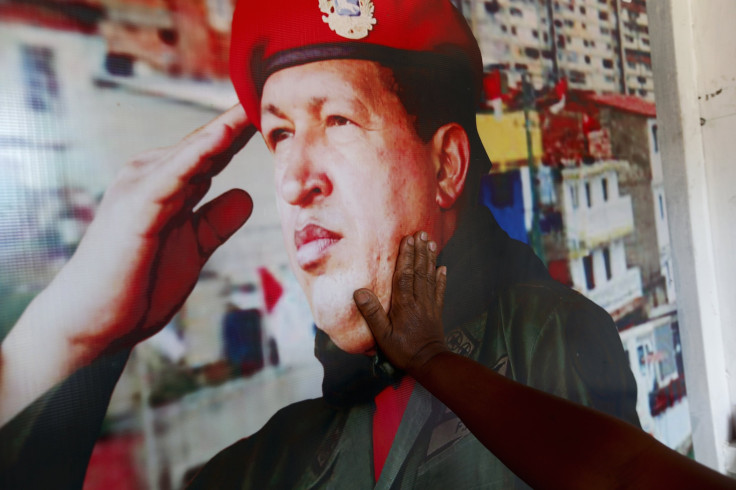Venezuela Since Hugo Chávez's Passing: Revolution, Inflation, And Currency Crisis

On March 5, 2013, Venezuelan President Hugo Chávez died. After a long battle with cancer, one of the most polarizing figures in recent Latin American history was gone, leaving a fragile legacy and a divided country. One year after his death, it looks like Chávez’s dream of a strong Venezuela might soon be on the way out too.
Venezuela sits on the world’s largest oil reserves, but the economy is a wreck. At a 56 percent annual rate, inflation has reached epic proportions, and the national currency, the bolivar, dropped more than 32 percent against the U.S. dollar in less than a year. The country has suffered from extreme shortages of everything from flour to toilet paper, and many privately owned stores are getting taken over by the armed forces with their goods sold at a 90 percent government-ordered discount.
Instead of finding a solution to the country’s ever-growing list of problems, the government and opposition spent the last 12 months arguing over whose fault it was. President Nicolás Maduro, who as Chávez’s right-hand man took over after his death and then narrowly won election in April, attributed the shortages and inflation to “economic war” and a conspiracy from U.S.-backed, right-wing political parties. Opposition leader Henrique Capriles kept calling out the “government’s lies” and promising the country a change if he was chosen in the election.
The issues came to a head in mid-February when the country erupted in protests. Called by several opposition figures, then expanding to students, what started as a peaceful demonstration on Feb. 12 turned into a bloody riot that left 18 people dead and hundreds arrested, including opposition People’s Will party leader Leopoldo López. Calls for dialogue from around the globe, from the Vatican to the White House to a mention of the country in Jared Leto's acceptance speech at the Oscars on Sunday, have yet to produce a resolution.
Riots have been going on for a month already, with no sign of stopping, not even for the Comandante’s death anniversary. Even as students kept manning barricades all around the country, Maduro and his administration were making lavish plans to honor the memory of Chávez on Wednesday.
Maduro will review a military parade in Caracas, followed by a ceremony at the mausoleum housing Chávez’s remains. Regional allies including Bolivian President Evo Morales and Nicaragua's Daniel Ortega will attend. The plans reflect the president’s well-known devotion for his ideological and political father. Maduro teared up as he announced the news of Chávez’s passing a year ago, and has fought tooth and nail to preserve his legacy.
However, all his efforts might be in vain. As the country’s economy keeps plummeting and citizens are more divided by the day, Venezuela is increasingly showing some of the classic markers of a failed nation: food shortages, massive inflation, rampant crime. Not even the fervent invocation of the ghost of Chávez may be able to keep Venezuela afloat in its current state.
© Copyright IBTimes 2024. All rights reserved.





















